Why is China obsessed with zero-Covid?
There is no doubt that China's continued zero-Covid strategy has affected its economy, and businesses are struggling to survive. Even if the government is firm in maintaining its course, fatigue and frustration have increased among the people. How long will the economy hold up as China maintains the zero-Covid model? And why is China obsessed with zero-Covid?
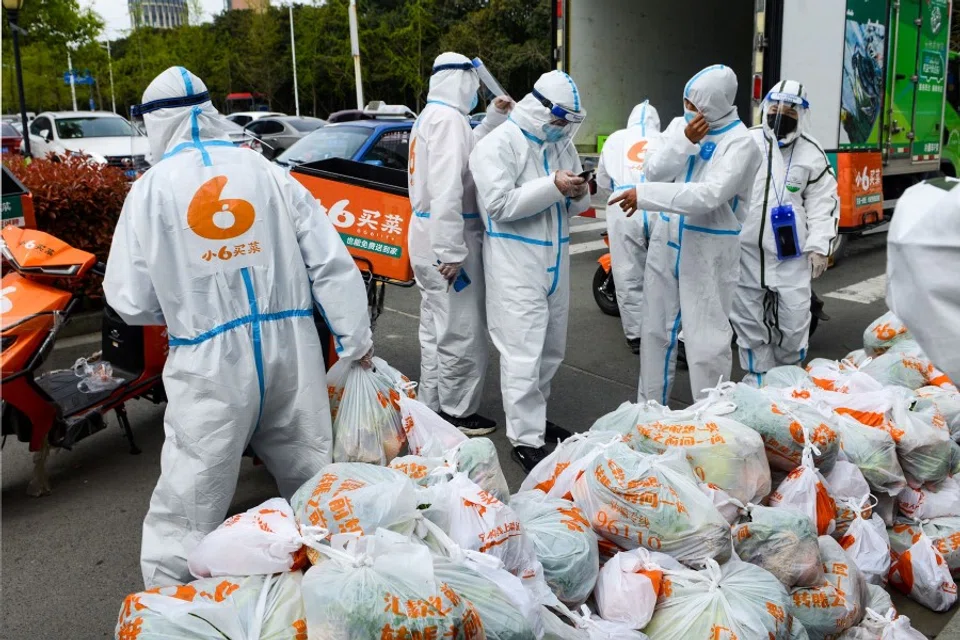
China's usually efficient courier service sector has been faltering recently. A friend in Beijing complained that some household items that they ordered over a week ago have yet to arrive. After inquiring with the seller, they discovered that the package was delayed en route because the pandemic situation has affected logistics.
Paralysed logistics and choke points
After a new round of outbreaks began spreading in China in March, many local governments have sealed off expressway entrances and exits to contain the virus, resulting in commercial vehicles being stranded on the expressways. One driver lamented to the media about being stuck for over 20 days; one had not made deliveries in three months but got caught amid the lockdown as soon as they received orders; another was just two kilometres from the destination but was stuck in limbo on the expressway ramp.
On 11 April, the Chinese State Council released a circular saying that local authorities are prohibited from blocking or closing expressways without authorisation, while freight vehicles and their passengers must not be arbitrarily restricted, and the authorities should not restrict movement based on the household registration of a person or the place of registration of vehicles.
Nomura's report estimated that about 373 million people in 45 cities, which make up around 40% of China's GDP, are now under full or partial lockdown.
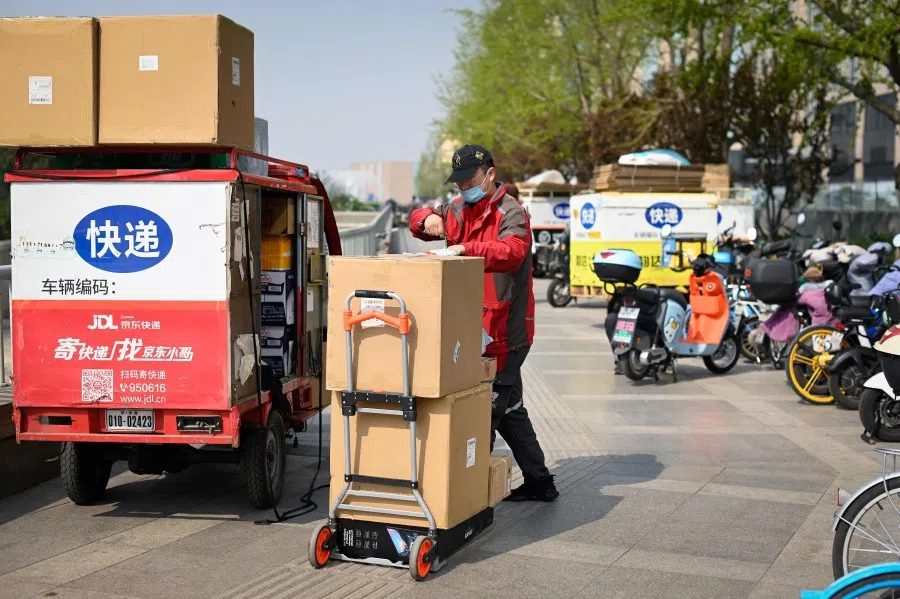
The paralysed logistics and choke points in domestic circulation are only one facet of the impact of the current wave of the pandemic on China's economy. Widespread lockdowns and controls have been implemented in places where the Omicron variant has been detected, and the economy is at a standstill, sparking a debate on whether China should continue its zero-Covid strategy at the cost of the economy "lying flat" (躺平).
Also on 11 April, financial services company Nomura Holdings warned that there is a rising risk of an economic recession in China. Nomura's report estimated that about 373 million people in 45 cities, which make up around 40% of China's GDP, are now under full or partial lockdown.
An earlier report by Goldman Sachs also highlighted that in the last two weeks of March, cities with mid- and high-risk districts accounted for one-third of China's GDP. Amid the impact of the pandemic, some organisations have revised downward their economic growth forecasts for China in the second quarter of this year and for the whole year.
Compared with two years ago, people now have a better understanding of the coronavirus and are not as afraid as during the initial stages of the outbreak, and China's vaccination rate has also reached nearly 90%. However, the authorities' anti-epidemic strategy has not changed much, as they continue to implement strict lockdowns and controls, as well as mass testing to achieve zero-Covid, which was proven effective in China.
Despite the dynamic-zero strategy being unchanged, fatigue has clearly grown among the public during this wave of outbreak, while the fears over the pandemic dragging down the economy is also increasing.
Maintaining the zero-Covid model
Following the breach in Shanghai, there was a debate over whether this zero-Covid model should be adjusted, but the Chinese leaders have set the tone at this critical juncture, stating, "We must adhere to the general policy of dynamic zero without hesitation, without wavering."
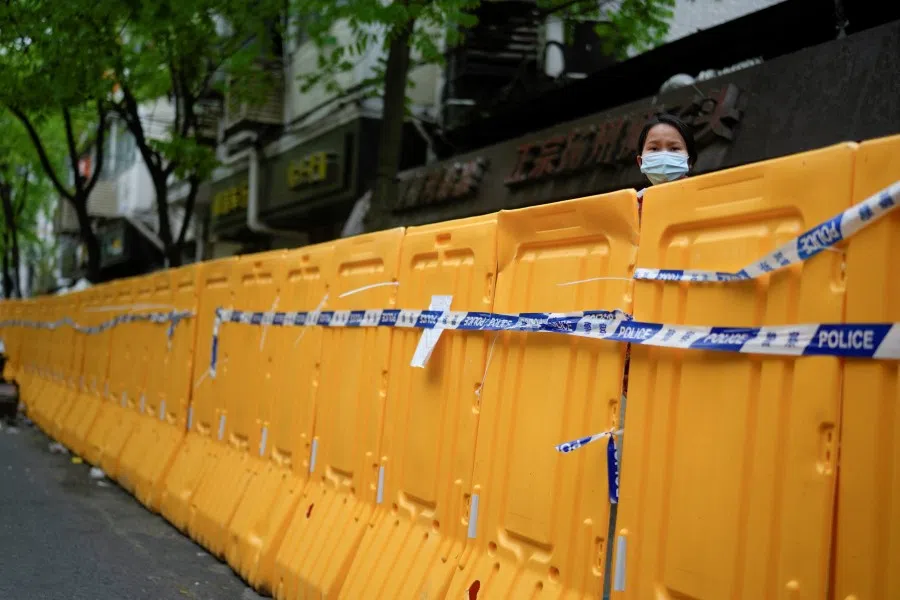
Over the past few days, Chinese state media has also embarked on a publicity campaign to guide the public towards dynamic zero. Economic Daily even said in a Chinese language commentary that "lying flat and living with the virus are insults to science, while dynamic zero is in fact an act of respect".
Despite the dynamic-zero strategy being unchanged, fatigue has clearly grown among the public during this wave of outbreak, while the fears over the pandemic dragging down the economy is also increasing. A Beijing academic lamented in private, "Zero-Covid has been quite difficult, and now people are also left with zero savings."
In retrospect, when the virus first spread two years ago, China was very confident of eliminating it, and was looking forward to restoring socioeconomic order.
The initial outbreak happened during the Chinese New Year period, after which the local governments did all they could for the non-local workers to return to the cities where they worked. Some even spared no expense to charter door-to-door transportation for the migrant workers to return to their factories, as "resuming work and productivity" (复工复产) was the buzzword at the time. In the first year of the pandemic, China was the first among the major world economies to recover and post positive growth.
China is not in a position to "lie flat" before the pandemic, nor can it let the economy "lie flat".
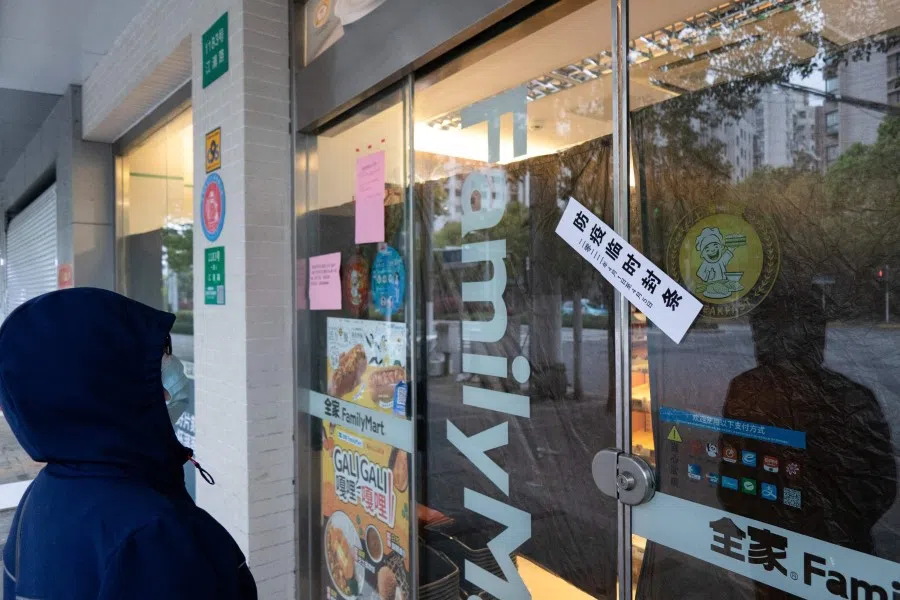
In an essay recently posted on his social media account, Chinese media personality Qin Shuo recalled that he visited Ningbo, Zhejiang, at the start of the pandemic to conduct interviews. He witnessed scenes of people resuming work and productivity, making sure "to not leave behind a single order". But now, the situation is very different. He said, "Now, under the strict controls in various locations, logistics and transport are severely obstructed. It is difficult for drivers to get moving, and even if there is demand online, they are not able to deliver."
Qin called for more awareness of the urgency of resuming work, productivity, school and city operations, as many businesses are left with little choice but to make survival a top priority for this year. He said, "If this goes on, there will be no way to resuscitate the fallen."
Political need for stability
As of now, China is not in a position to "lie flat" before the pandemic, nor can it let the economy "lie flat". China's leaders are also aware that China's economy is in distress, given the combined effect of the international situation and the various waves of the pandemic.
On 8 April, Chinese Premier Li Keqiang presided over a symposium on the economic situation involving experts, entrepreneurs and local government officials. He repeatedly warned that unexpected factors have brought about greater uncertainties and challenges to economic stability, and China has to be highly alert of these unpredictable changes in the international and domestic environment.
... when the economic cost gets too high and the people's lives are broadly affected, would that lead to a different type of instability?
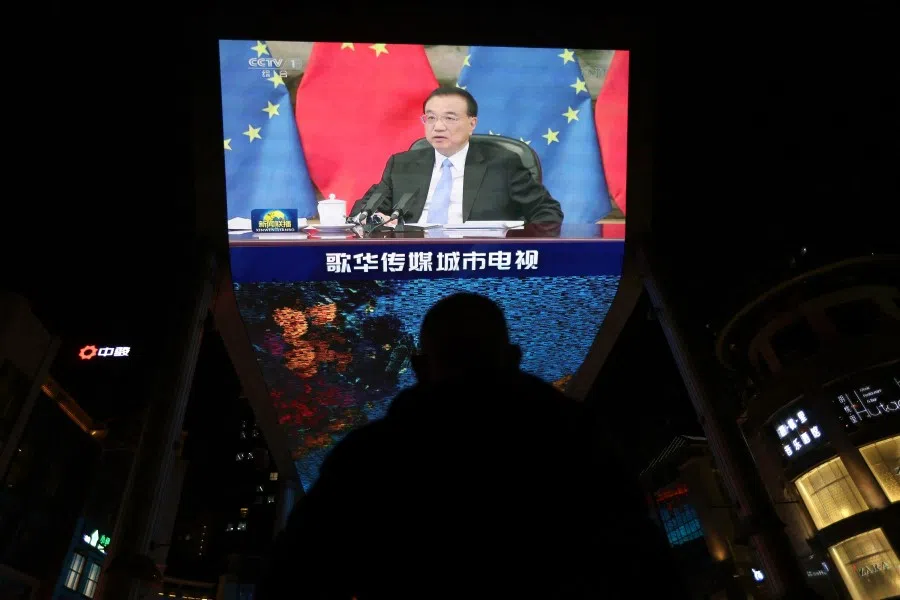
The Chinese economy and people have enjoyed the benefits of over two years of zero-Covid measures, and China still has the ability and confidence to eliminate the virus within its borders. However, the current global pandemic situation and the elusive nature of the Omicron variant will only increase the cost of zero-Covid to China, leading to a growing imbalance in the people's sacrifice and the returns.
Amid the cycle of breaching, outbreak, lockdown and controls, and zero-Covid, some companies may close down and some people may lose their jobs and use up all their savings. Even if this does not happen, people's feelings of helplessness and fatigue would increase, and their confidence in restoring the socioeconomic order would be constantly hampered.
We can expect China to maintain its dynamic-zero policy for the time being, especially since the lesson from Shanghai's experience would have given strong motivation to various regions to follow this policy direction set by the leaders. Preventing the large-scale spread of the virus is in line with the political need for stability before the commencement of the Chinese Communist Party's 20th Party Congress. But what is equally worrying is when the economic cost gets too high and the people's lives are broadly affected, would that lead to a different type of instability?


![[Big read] When the Arctic opens, what happens to Singapore?](https://cassette.sphdigital.com.sg/image/thinkchina/da65edebca34645c711c55e83e9877109b3c53847ebb1305573974651df1d13a)


![[Video] George Yeo: America’s deep pain — and why China won’t colonise](https://cassette.sphdigital.com.sg/image/thinkchina/15083e45d96c12390bdea6af2daf19fd9fcd875aa44a0f92796f34e3dad561cc)